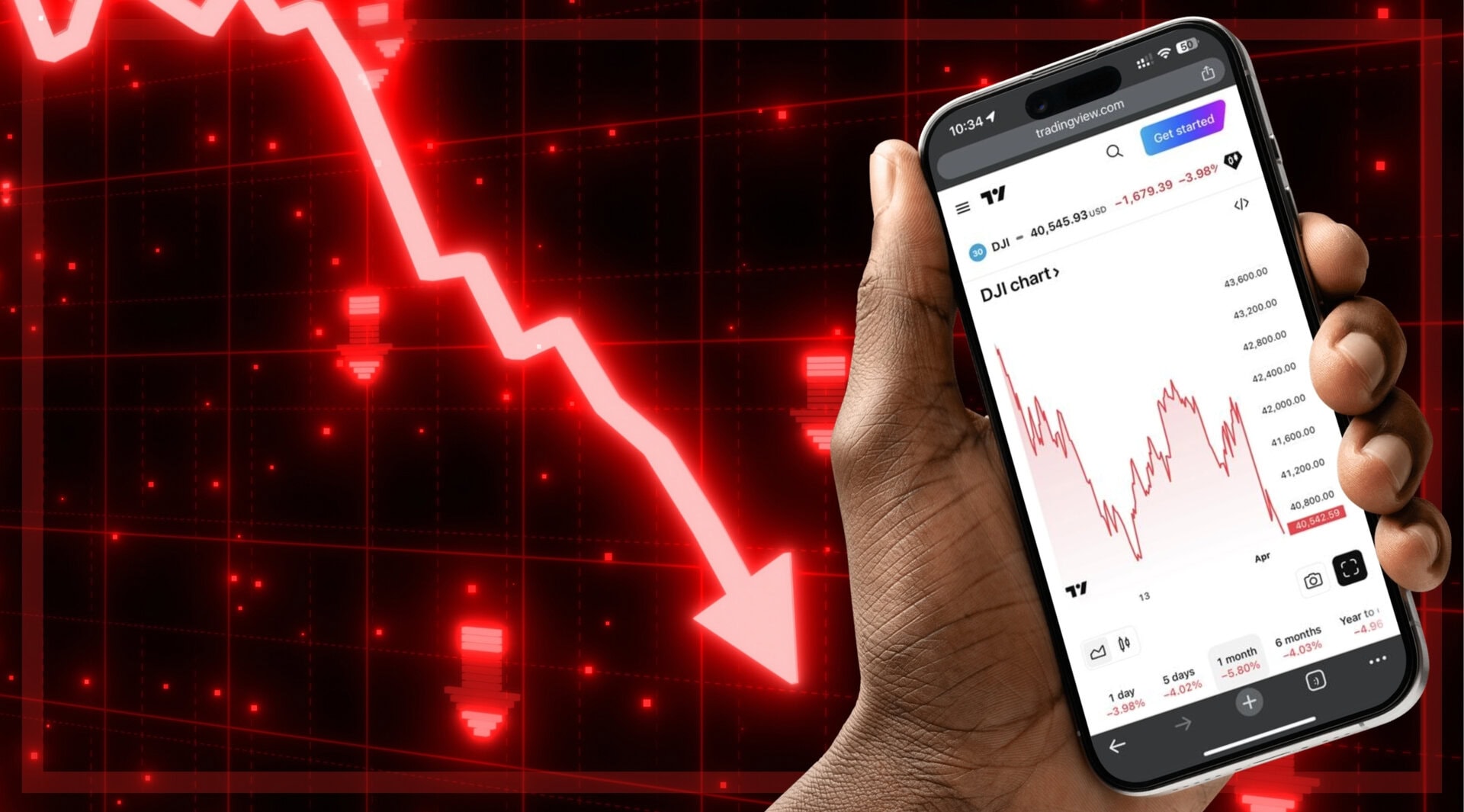The World Bank recently sounded the alarm on the rising debt in emerging markets and developing economies (EMDEs). These countries are struggling with increasing debt costs, which are consuming a high portion of their GDP.
In 2022, developing countries spent a record $443.5 billion on public debt, exposing the growing financial pressures they face. In fact, according to Senior Vice President and Chief Economist of the World Bank Group, Indermit S. Gill, “Debt servicing costs on public and publicly guaranteed debt are projected to grow by 10 percent for all developing countries over the 2023–24 period — and by nearly 40 percent for low-income countries. Countries eligible to borrow from IDA are likely to face a rough ride in the coming years: interest payments on their total external debt stock have quadrupled since 2012, to an all-time high of $23.6 billion.”
“These payments are consuming an ever-larger share of export revenues, putting some countries just one shock away from a debt crisis. More than a third of this debt involves variable interest rates that could rise suddenly,” he added.
Essentially, emerging markets are drowning in debt.
Shockingly, multiple reports indicate that global debt rose to an all-time high of $315 trillion in Q1 2024 from $1.3 trillion, with $105 trillion in emerging market debts, where China, India, and Mexico topped the list with the biggest increases.
The global debt crisis:
— The Kobeissi Letter (@KobeissiLetter) June 11, 2024
Total world governments' debt hit a whopping $315 trillion in Q1 2024, a new all time high.
In Q1 alone, total global debt increased by $1.3 trillion.
At the same time, emerging markets debt hit $105 trillion, rising by ~$50 trillion in just a decade… pic.twitter.com/Np1ejZKyqs
Countries like Russia and Sri Lanka are particularly hard hit, with debt servicing costs eating up a big chunk of their GDP. This financial strain makes it tough for them to invest in essential services like healthcare and education.
Traditional ways of managing debt are falling short, but decentralized finance (DeFi) could be a game-changer, offering clear and efficient solutions through blockchain technology.
DeFi for Debt Management
Managing debt the traditional way has many challenges. It costs a lot of money and takes too much time, making it hard for countries to handle their debt efficiently. For example, in 2022 and 2023, issuing a U.S. government bond costs between 0-1% of its value, which means billions of dollars for large bonds. On top of that, there’s often a lack of transparency, leading to corruption. In some countries, up to 20% of public funds are lost to corruption every year.
In 2022 the UK Government 'lost' £219bn to corruption, nearly 20% of the entire budget.
— BladeoftheSun (@BladeoftheS) October 23, 2023
Another £150bn was lost to tax avoidance, meanwhile excess profits added up to about £120bn, fuelling inflation as well as stealing your money.
That's £500bn, the NHS budget is £140bn
Decentralized Finance (DeFi) could be a better way. DeFi uses blockchain technology, which works like a digital ledger that stores transactions across many computers. This makes it nearly impossible to change or mess with the records. By using DeFi, countries could have clear, unchangeable records and avoid the need for middlemen.
For instance, the World Bank launched the world’s first blockchain-based bond called “bond-i” (short for “blockchain operated new debt instrument”) in August 2018 — in collaboration with the Commonwealth Bank of Australia (CBA) — which showed just how blockchain can improve transparency in bond deals.
Blockchain makes sure all transactions are visible and can’t be altered. This transparency can cut down on corruption and poor handling of funds by providing a clear, honest record of every transaction like the World Bank’s bond-i.
Equally, by cutting out the middlemen, DeFi can lower the costs tied to managing debt. In the traditional system, several middlemen take their fees.
According to the Bank for International Settlements, DeFi has the potential to lower transaction costs significantly by eliminating traditional middlemen, though the exact reduction can vary depending on the specific application and context.
What are the risks facing banks that transact on permissionless blockchains or similar #DLT technology and what can be done to mitigate them? This #BaselCommittee working paper offers insights into potential risk management strategies and safeguards https://t.co/65FyQXdKNL pic.twitter.com/9594RlRtXl
— Bank for International Settlements (@BIS_org) August 28, 2024
Even though DeFi looks like a great solution for debt management, it also has its own set of risks that need attention.
One major issue is how fickle cryptocurrencies can be. Unlike fiat money, the value of cryptocurrencies can change a lot in a short time. For example, BTC lost more than 50% of its value in just three months in 2022. This kind of volatility can make it tough for countries to manage their debt if they use cryptocurrency-backed bonds.
Also, DeFi is still new and complicated, and the rules around it and cryptocurrencies are still unclear in many parts of the world. Each country handles it differently, and some have no guidelines at all. This creates legal risks for countries trying to use DeFi to manage their debt.
China, for one, has banned all cryptocurrency transactions since 2019, but Switzerland embraced them with clear laws. This dissimilar stance is merely because many governments and financial institutions don’t fully understand how to use DeFi or crypto properly. This lack of knowledge can lead to poor management and financial losses. A good example is the collapse of the TerraUSD stablecoin in 2022, which showed the risks that come with not fully understanding the DeFi space.
The implosion of #TerraUSD and others highlight inherent fragilities in #Stablecoins, which seek to import central banks’ stability, but lack proper institutional arrangements and credibility #BISAnnualEconReport https://t.co/wzJk9WT6al pic.twitter.com/pujShelI7i
— Bank for International Settlements (@BIS_org) June 21, 2022
Further, while blockchain is generally secure, DeFi platforms are still at risk of being hacked. In 2023 alone, hackers stole over $1 billion from DeFi platforms, although this did represent a decline of 63.7% year-over-year (YOY), according to blockchain data platform Chainalysis. Keeping these platforms safe from cyber-attacks is important to make sure debt management isn’t put at risk.
Finally, DeFi depends heavily on technology. If something goes wrong, such as a technical bug, it could lead to big financial problems. In 2024, several DeFi platforms experienced significant hacks due to vulnerabilities in their code. For instance, the Delta Prime platform was exploited very recently for nearly $6 million due to a token minting bug and poor private key security.
Mitigating Risks
Using DeFi for managing sovereign debt offers several benefits. It can reduce costs, increase transparency, and provide access to a broader investor base. However, there are risks, such as the volatility of cryptocurrencies and regulatory challenges.
Marcello Estevão, a World Bank official, noted, “The high debt levels in emerging markets are unsustainable. Innovative solutions like DeFi could provide much-needed relief.” Similarly, Anthony Bufinsky from Arca Labs stated, “Smart bonds can transform the life cycle of debt instruments and have the potential to disrupt debt capital markets.”
The pandemic left emerging-market banks holding record amounts of government debt, raising the odds that pressure on public finances may threaten financial stability. See our new #IMFBlog for how to reduce those risks. #GFSR https://t.co/frv1ECZDvv pic.twitter.com/DKygZDVKTA
— IMF (@IMFNews) April 18, 2022
Thus, while DeFi offers innovative solutions for managing sovereign debt, it is essential to be aware of and address these risks. Countries considering DeFi for debt management should work closely with experts, regulators, and technology providers to mitigate these risks and ensure the successful implementation of DeFi solutions.
To mitigate the risks associated with using DeFi for debt management, countries should take several proactive steps. Educating stakeholders and promoting awareness about DeFi and its risks can help bridge the knowledge gap.
Diversifying investments and using stablecoins can spread risk and reduce volatility. Investing in technology and developing in-house expertise can support DeFi initiatives. Collaborating with DeFi experts and engaging with the community can also provide valuable insights and best practices. Continuous monitoring and evaluation of DeFi platforms can help identify and address potential issues. Ensuring compliance with local and international laws and establishing legal recourse can protect in case of disputes or fraud.
Thus, with the right strategies in place, countries can harness the benefits of DeFi while minimizing potential downsides.
How Countries Are Living The DeFi Dream
The future of debt management in emerging markets may very well lie in the innovative solutions offered by DeFi and cryptocurrency-backed bonds. Below are just a few examples of countries exploring the DeFi options already, in the hope of a more transparent, efficient, and secure financial system that can help alleviate the burden of sovereign debt.
While the use of DeFi for debt management is still in its infancy, El Salvador has been at the forefront of integrating cryptocurrency into its financial system. In 2021, it became the first country to adopt Bitcoin as legal tendaer. Building on this, El Salvador has explored issuing Bitcoin-backed bonds, also known as “Volcano Bonds,” to raise $1 billion to fund various national projects, including the development of a Bitcoin mining industry powered by renewable energy from the country’s volcanoes. This move seeks to take advantage of the transparency and efficiency of blockchain technology to manage debt more effectively. The bonds received regulatory approval from El Salvador’s Digital Assets Commission and are expected to be issued in the first quarter of 2024.
El Salvador is #Bitcoin country.
— The Bitcoin Office (@bitcoinofficesv) January 11, 2023
Bitcoin is money.
Everything else is a security. pic.twitter.com/jXJUpvWz5r
The UAE has been proactive in adopting blockchain technology and exploring DeFi applications. The Dubai International Financial Centre (DIFC) has launched several initiatives to promote blockchain and DeFi innovation. These efforts aim to create and ginger a conducive environment for DeFi solutions that could be used for managing sovereign debt.
The rising sovereign debt in emerging markets is a pressing issue that requires innovative solutions. Decentralized finance (DeFi), particularly cryptocurrency-backed bonds, offers a promising alternative. While there are risks, the potential benefits make it a solution worth exploring.
Author: Richardson Chinonyerem
#DeFi #EmergingMarkets #Debt #Crypto #WorldBank















